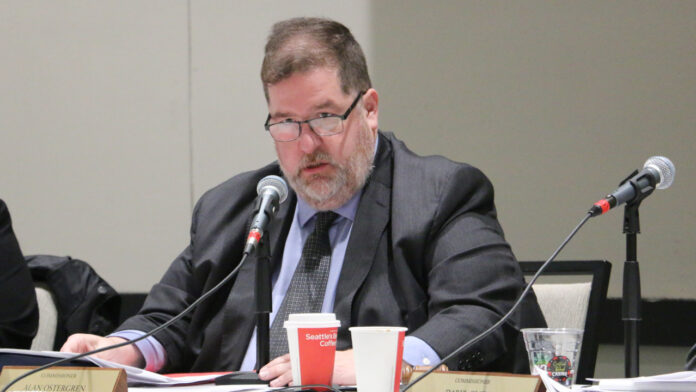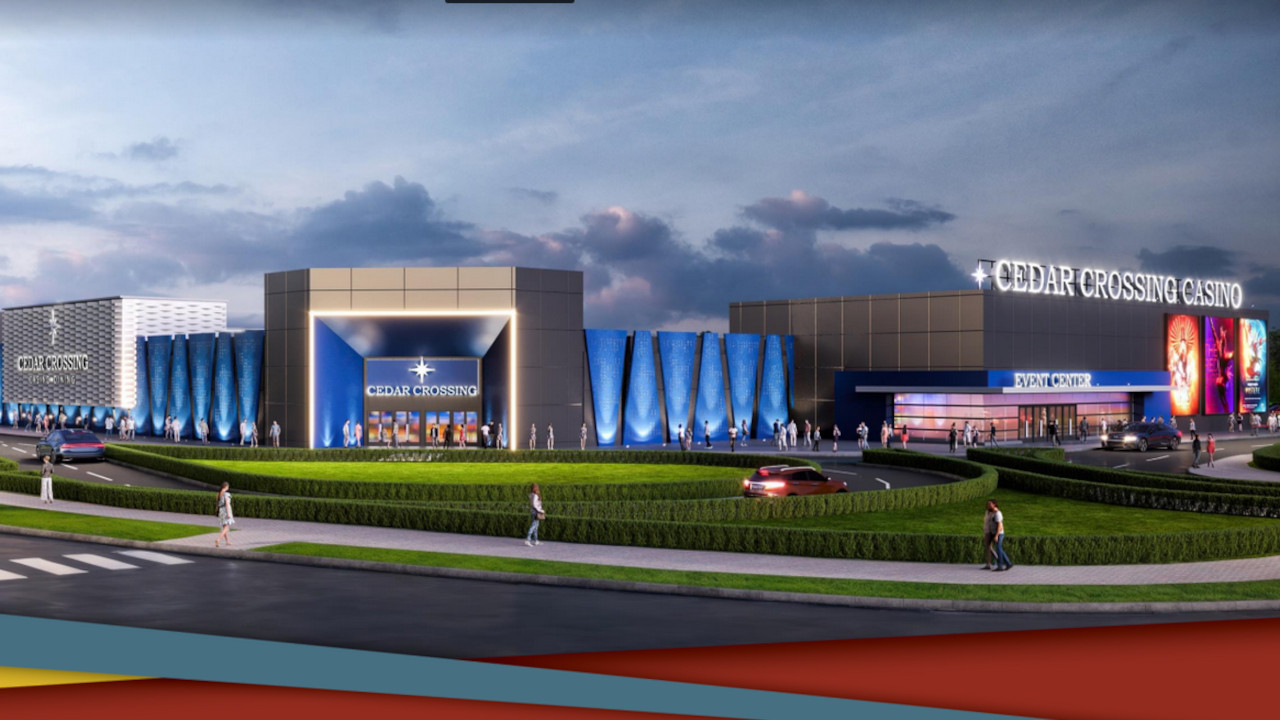
The Iowa Racing and Gaming Commission voted Thursday, Nov. 21 to set a briefing schedule for consideration of an effort to block the commission’s consideration of a Linn County casino license.
However, the commission also voted not to issue a formal stay on consideration of the license application itself.
The petition for declaratory relief, filed Nov. 8 by the Riverboat Casino and Golf Resort and the Washington County Riverboat Foundation, claims that the wording of the 2021 Linn County ballot measure that permanently authorized gaming in Linn County was faulty under Iowa state code and that, as a result, the IRGC “lacks authority to issue a gambling games license in Linn County.
The petition also asked the IRGC to issue a stay on consideration of LInn County’s license application until the claims are resolved.
Meeting at the Catfish Bend Casino in Burlington, the IRGC asked its staff to set a briefing schedule to review the declaratory relief measure, and that the review, to include consideration of the legal issues raised in the petition, should be completed in time for the commission to discuss its findings before Feb. 6, the date set by the commission to decide whether to issue a casino gaming license to Linn County.
The IRGC’s decision was among four options for responding to the petition, one of which was legally required within 30 days of the petition’s filing, according to IRGC legal counsel David Ranscht. The other three options – accept the petition’s claims, deny the claims or respond by a specific date – were dismissed.
IRGC board chair Daryl Olsen said scheduling a thorough review was the most responsible decision the commission could make.
“I really think it’s our job as a commission to gather all the information we possibly can before we make a decision,” Mr. Olsen said. “I think there’s potentially reasons why we could decline this, but I don’t think that’s in the best interest of the commission, or the best interest of gaming, that we do that. So my thought process would be that we would set a schedule, we listen to all the information as we’ve been consistent with and gather the information. At that point in time, we can make a decision that we feel is the best. Without that, we’re jumping ahead of things.”
IRGC commissioner Alan Ostergren, who also works as an attorney, concurred, noting the petition is “a complicated question of Iowa administrative law.”
He said that typically, a request for declaratory relief is sought as a “shield” to confirm that a regulatory process is valid, but this instance represents “an attempt to use a petition for declaratory ruling as a sword, essentially to say somebody else is not in compliance with the rules.”
“We ultimately have to decide whether the various criteria to issue a license have been met,” Mr. Ostergren said. “And so we can’t avoid this question. It’s going to have to be decided in one format or another, or one time frame or another, and I have a preference of setting a briefing schedule so that we ensure that we give the Linn County folks the full opportunity, if they choose to participate in this process, to present the best legal arguments that they have, and then to allow our petitioner to provide a reply document.”
After the meeting, Mr. Olsen said the petition didn’t necessarily take the IRGC by surprise, “but I don’t think anybody anticipated it either.”
“We’ve just got to wait at this point in time, listen to the information and make the best decision we can based off the information that’s there,” Mr. Olsen said. “We’ve directed staff to set a schedule, and I think they understand that, we don’t want to delay the process, but we don’t want to rush through the process. I think by us not agreeing to a stay, we have consistently said we’ll stay with the schedule that we have in play, and we’ll try to live by the schedule that we have.”
Attorneys representing both the petitioners and the Linn County casino group were present, but didn’t offer public comment on the petition.
Anne Parmley, president of the Linn County Gaming Association, who was also authorized to speak on behalf of Peninsula Pacific Entertainment, the development group for the proposed casino, said the casino applications were pleased with the IRGC’s response to the petition.
“Their decision to deny the stay is much appreciated,” Ms. Parmley said. “Their decision to listen to the arguments and make the best informed decision is a reasonable action, so we’re fine with that as well.”
Ms. Parmley also said she was “excited about the show of support” from commenters at the IRGC-hosted public session Wednesday at Kirkwood Community College. More than 100 people spoke at the meeting, with about two-thirds representing local leaders, business owners and nonprofit agency representatives.
“I’m just still really pleased with how this process is evolving, and pleased that we’re going to try to stay on track.” Ms. Parmley added.
Ms. Parmley noted the filing of the petition wasn’t entirely unexpected by casino supporters.
“We fully expected that there would be some sort of delay tactic introduced along the way,” Ms. Parmley said. “We just didn’t know what it would look like, and this is what’s manifested itself, but I’m confident that Linn County will prevail in this argument, and that will move forward with the process.”
Opposition to the Linn County casino was also announced earlier this month in a campaign mounted by Iowans for Common Sense, which bills itself as a grassroots organization.
The group is running television ads in the Des Moines and Cedar Rapids markets and is gathering signatures on an online petition to reinstate a moratorium on new casino licenses in the state.
Ms. Parmley said Linn County casino supporters believe Iowans for Common Sense is connected to representatives of existing casinos in the state, several of whom spoke in opposition to the Linn County application Wednesday.
“It’s fully funded by Riverside and others who are against the Linn County casino,” Ms. Parmely said. “And there’s nothing grassroots about that.”

The $275 million casino project, dubbed Cedar Crossing, would house 700 slot machines and 22 table games, but developers say it would also provide a “comprehensive entertainment destination” with amenities such as a 1,500-seat entertainment venue, several restaurants, an arts and cultural center, a STEM (Science, Technology, Engineering and Mathematics) lab for area students, and a shuttle service that will connect casino patrons with local hotels and attractions.
If approved, the casino would be built on city-owned property between F and I avenues NW and First and Fifth streets NW.
Most of that property was previously occupied by the Cooper’s Mill restaurant and Best Western Hotel before those facilities were demolished due to damages sustained in the 2008 flood, and the property was subsequently acquired by the city. It has sat vacant for the past several years.
As previously prescribed, two market studies commissioned by the IRGC, intended to assess the state’s current gaming landscape and the impact of a potential new casino on that landscape, will be reviewed by the commission at its Jan. 23 meeting at the Wild Rose Casino in Jefferson.
The IRGC is scheduled to decide on Linn County’s casino gaming application at its meeting Feb. 6 at Prairie Meadows Casino in Altoona.




